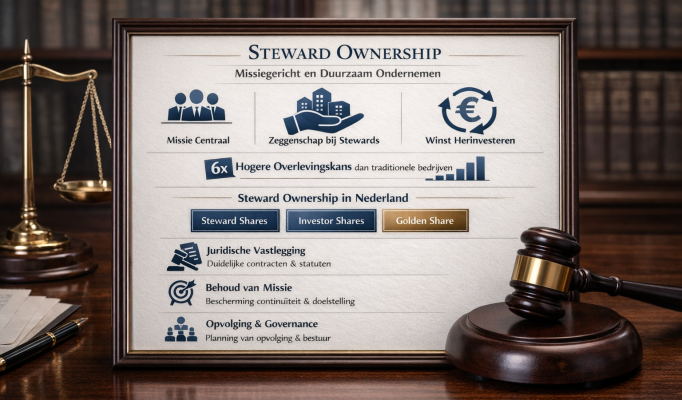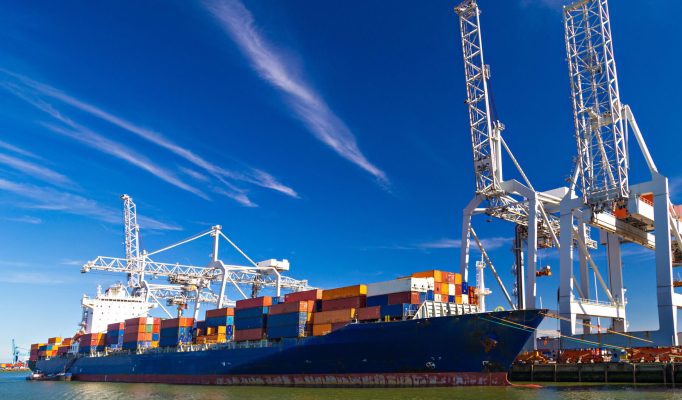As of 2024, the European regulatory landscape for combating money laundering and terrorist financing will change significantly. The Anti-Money Laundering Regulation (AMLR) and the Sixth Anti-Money Laundering Directive (AMLD6) form the core of a comprehensive legislative package intended to harmonise the current system across the EU.
The implications will also be substantial in the Netherlands: many more parties will be subject to the rules, the obligations will become stricter, and supervision will be intensified—both nationally and at the European level.
What exactly is changing, and what does this mean in practice for organisations and professionals subject to the Dutch Anti-Money Laundering and Anti-Terrorist Financing Act (Wwft)?
A Single European Regulatory Framework with Direct Effect
On 10 July 2024, the AMLR and AMLD6 entered into force. Most obligations will apply as from 10 July 2027. The AMLR is a regulation and therefore directly applicable in all Member States, including the Netherlands. This marks the end of the national discretion that previously existed in the implementation of European AML rules.
This has immediate consequences for institutions subject to the Wwft. In many cases, existing procedures, risk analyses, and responsibilities will have to be reassessed—both legally and organisationally.
A Broader Scope: Also Holdings, Crypto Providers and Brokers
One of the most notable changes is the expansion of the scope of application. The AMLR introduces a new, broader definition of ‘obliged entities’. Entities that currently fall outside the scope of the Wwft will become subject to reporting obligations.
The following categories, among others, will fall under the rules:
• Financial and mixed holdings with subsidiary institutions;
• Credit intermediaries managing funds;
• Crypto-asset service providers;
• Crowdfunding platforms and alternative financiers;
• Dealers in luxury goods such as cars, art, or watches;
• (Under certain conditions) professional football clubs and player agents.
Existing exemptions in the Wwft, such as those for electronic money institutions or insurance intermediaries, will be revoked or tightened. Even institutions with a low-risk profile must prepare—unless they demonstrably fall under national exemptions.
Stricter Internal Obligations and Governance
In addition to a broader scope, the substance of the obligations will also become more demanding. The AMLR requires institutions to have a comprehensive and up-to-date AML/CFT compliance framework in place, with defined internal procedures, risk assessments, and control mechanisms.
New elements include:
• A member of the management board must be designated as responsible for AML policy (compliance manager);
• Each organisation must appoint a compliance officer responsible for the day-to-day execution of AML policy and liaison with the FIU;
• Policies must be established to ensure compliance with targeted financial sanctions, such as freezing of assets or prohibitions on providing services to sanctioned persons or entities.
The compliance officer requirement applies regardless of the size of the organisation. The current proportional application option under the Wwft will largely disappear. Smaller firms must therefore also scale up organisationally.
Enhanced Risk Assessment and Reporting Obligations
The enterprise-wide risk assessment will acquire a more stringent legal status. Institutions must not only identify money laundering and terrorist financing risks, but also risks related to circumvention of sanctions. The assessment must be reviewed upon changes to products, services or operations, and in the event of relevant internal or external developments.
Moreover, the obligation to report to the FIU remains—but with greater emphasis on early detection. Under AMLD6, FIUs will have direct access to tax, real estate, and vehicle registers and may suspend, block, or even refuse transactions before they are executed. This necessitates better coordination and swifter internal decision-making in respect of reports.
UBO Register: Supervision, Reporting and Inspections
The obligation to identify ultimate beneficial owners (UBOs) will be tightened. Both ownership and control must be examined, and discrepancies with the UBO register must be reported within 14 days. In cases of doubt, the Chamber of Commerce may conduct on-site inspections.
The scope of the UBO register will be extended: foreign entities owning real estate in the Netherlands must register their UBOs—with retroactive effect to 1 January 2014.
While AMLD6 does limit access to UBO information to some extent, access will remain available to authorities, obliged entities, and third parties demonstrating a legitimate interest.
New supervisory authority: AMLA to oversee as of 2028
A major innovation is the establishment of the European Anti-Money Laundering Authority (AMLA). This new supervisory body, based in Frankfurt, will supervise 40 selected institutions with high risk or cross-border activities from 1 January 2028. National supervision will continue to apply to other institutions, but under AMLA coordination.
From 2026, AMLA will publish guidelines on the application of the AMLR and will act as a coordinating body between supervisory authorities and FIUs within the EU. This will result in less fragmented supervision—but also more direct and stringent oversight, especially for internationally active institutions.
Looking ahead: Preparation is essential
Although many provisions will only apply from 2027 onwards, deferral is not an option. Many institutions will need to restructure their internal policies, procedures, and responsibilities—and demonstrate compliance with the new standards. This applies not only to large institutions, but also to firms previously considered out of scope.
Those who prepare in time will avoid forced intervention by supervisors, loss of banking relationships, or reputational damage. Those who delay will face increased risks of sanctions, blocks, or AMLA supervision.
Want to learn more or get started immediately?
ACG International supports Wwft-obliged institutions in the implementation of the AMLR and AMLD6. From risk analyses and UBO structures to sanctions policies and governance restructuring—we ensure your organisation is legally and practically prepared for the new European framework.
Legal and practical: with lawyers and compliance officers
ACG International offers not only specialised legal advisors, but also an in-house compliance officer with expertise in supervision, internal implementation, and compliance governance. This enables us to provide both legal advice and practical, tailored guidance and training.
Our services include:
• Entity-level risk assessments;
• Evaluation and restructuring of AML policies;
• Assistance in establishing sanctions procedures;
• And practical training for staff, policymakers, and supervisory bodies.
Contact us for an intake, advice, or a specific training proposal.


